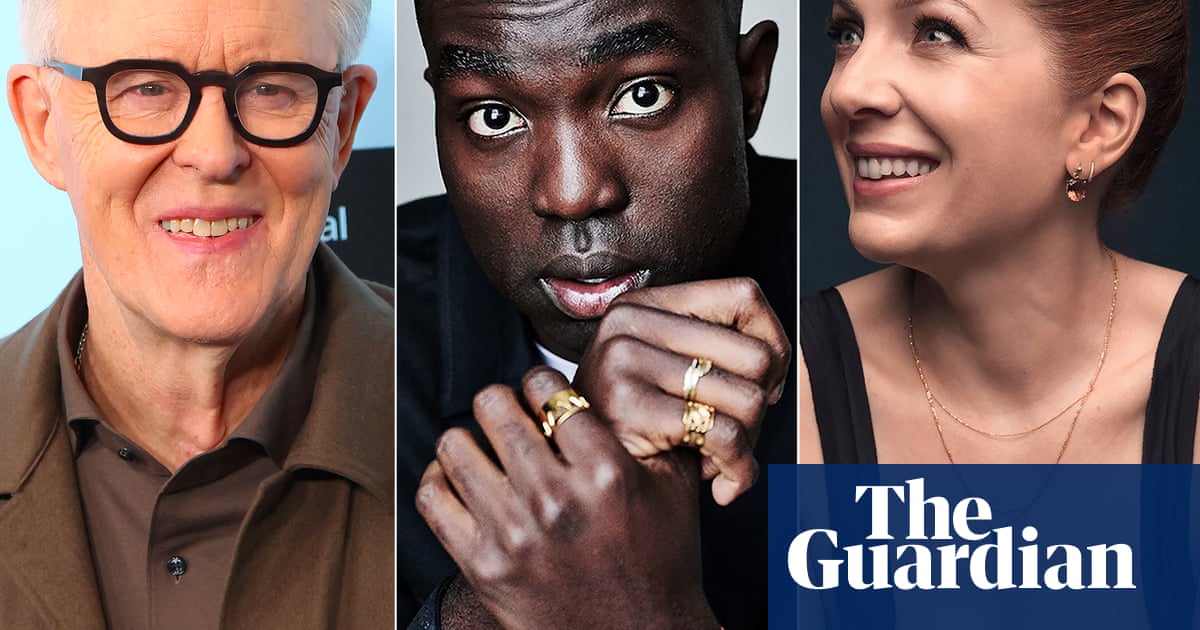HBO announced on Monday that it has cast nine further roles for its Harry Potter series. Recognisable faces such asKatherine Parkinson(Molly Weasley), Johnny Flynn (Lucius Malfoy) and Daniel Rigby (Vernon Dursley) have been joined by the newcomers Leo Earley, Alessia Leoni and Sienna Moosah. Well, RIP their mentions.
We have been here before – recently and often. Harry Potter has become such a febrile battleground that the pattern has already become well worn. When John Lithgow was announced as Dumbledore, he revealed that a friend had sent hima link to an articleentitled: “An open letter to John Lithgow: Please walk away from Harry Potter.”
This is only the tip of the iceberg. When Nick Frost was named as the new Hagrid – a role he claims to have manifested by writing down the word “Hagrid” 5,000 times – he quickly had to disable comments on Instagram, thengave an interviewin which he said that his opinions “don’t align in any way, shape or form” with those of JK Rowling. Paapa Essiedu attempted to get in front of the controversy by signinga petitioncalling for the UK entertainment industry to protect trans people, but this didn’t shield him from criticism. All three actors have tried to ameliorate the controversy in their own way; all three have been criticised anyway.
But this is the predicament we find ourselves in. A few years ago, announcing yourself as the star of aHarry Potterseries would have simply told the world that you had decided to receive a lot of money over many years from a studio that had a dearth of new ideas. But, in 2025, a Harry Potter actor isn’t just taking a job on a TV show; they are making a political statement, whether they like it or not.
As such, this week’s announcement of the new cast members was met with weary sighs on social media. Parkinson has come in for especially sustained attacks, given that her breakout role was in The IT Crowd, made by Graham Linehan, who is on the same side as Rowling when it comes to gender.
Presumably, Parkinson doesn’t spend her days Googling the screenwriter of every script she receives to see if they are trans-exclusionary. But now she – and the other actors named on Monday, plus anyone even tangentially associated with Harry Potter – is under pressure to declare a side. In short, the whole thing is a mess.
This isn’t going to go away any time soon. It’s more than a year until the Harry Potter series airs, which means it won’t finish for at least a decade. Lithgow has said it will probably be his final major role, since he will be pushing 90 by the time it wraps. Every time anything of note happens – any time there is a junket or a new actor is cast – the issue will be front and centre. The actors who oppose Rowling will be forced to do it over and over again. The same goes for the ones who agree with her. The ones who just want a quiet life will twist themselves into knots trying to say as little as possible in the face of direct questioning. There is no outrunning this.
Sign up toWhat's On
Get the best TV reviews, news and features in your inbox every Monday
after newsletter promotion
To make matters worse, you already know if you are going to watch Harry Potter or not. Maybe you will watch it because you loved it as a child and can overlook Rowling’s views (or support them). Maybe you won’t because you don’t want to financially aid Rowling, or because the thought of sitting through a decade-long third retelling of a story you never liked much in the first place makes you feel depressed and exhausted. Either way, your mind has been made up. What we are left with is a show that is too big to ignore. It’s going to be a long decade.
